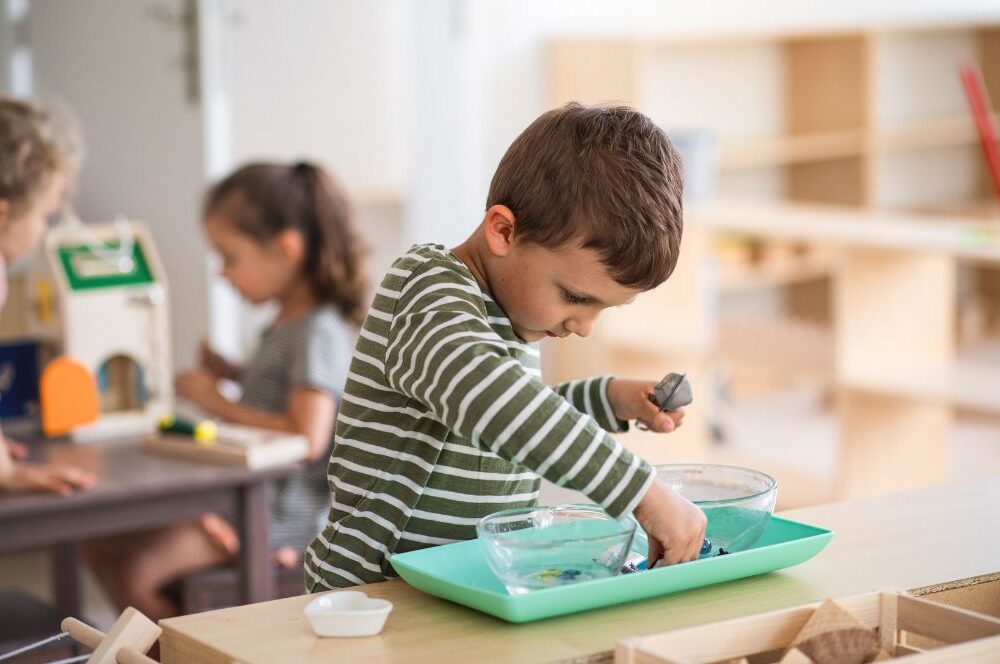
Are you looking to enroll your child in a school with an invigorating and nurturing environment? If so, you may want to consider a Montessori School. If you are unfamiliar with the Montessori method, stay here to learn more about the three key principles that the best Montessori schools implement in their curriculum.
Respect for the Child’s Natural Development
According to the American Montessori Society, The Montessori Method was developed by Dr. Maria Montessori in the early 1900s, with one of its most fundamental principles being that each child is unique and develops at their own pace. The Montessori classroom is designed to be a welcoming and nurturing environment that encourages children to explore and learn at their own pace. Teachers act as guides, rather than lecturers. This means that the teacher will follow the student’s lead and interest instead of forcing a certain way of learning on the student. The best Montessori schools don’t provide a fixed curriculum. Instead, they adapt to the needs and interests of the student to optimize the learning experience. This creates a personalized education for every student and allows them to develop their learning style and pace.
Encouraging Independence and Self-Directed Learning
Another important principle of the Montessori Method is that children should be encouraged to be independent and self-directed learners. In Montessori institutions, children are free to choose their own activities and materials and work at their own pace. By giving the students autonomy over their learning experience the Montessori method helps to develop self-discipline and responsibility which will stay with the child throughout their life.
Focus on Practical Life Skills and Hands-On Learning
In a Montessori classroom, children engage in hands-on activities that are practical and meaningful to them. They have access to a wide range of materials and activities that are designed to help them develop physical skills, such as pouring, cutting, and buttoning, as well as cognitive skills, such as counting, matching, and sorting. Additionally, children are encouraged to learn through exploration and discovery, and the teacher provides guidance and support when needed. These practical life skills and hands-on learning help to foster creativity and curiosity in the child and help to develop a solid foundation for more complex learning in the future.
Ready to learn why a Montessori school may be right for your child? Contact Rowntree Montessori Schools today, and we’ll guide you through the admissions process. We welcome the opportunity to give you a tour of the school and answer your questions.
